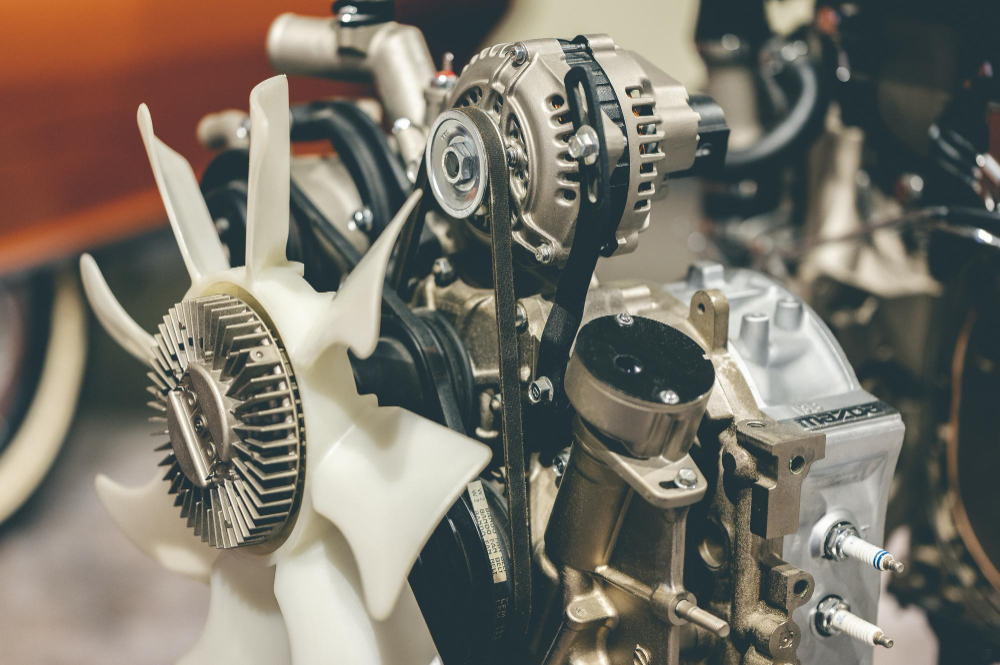Introduction
Bremerhaven, located on Germany’s North Sea coast, is a key hub for maritime logistics and shipping. Known for its advanced port facilities and strategic location, Bremerhaven plays a vital role in the transit of spare parts for various industries, particularly in the maritime and automotive sectors. In this blog, we’ll explore the importance of spare parts transit in Bremerhaven, the logistics involved, and strategies for optimizing the supply chain.
The Significance of Spare Parts Transit
- Minimizing Downtime: For industries that rely heavily on machinery and equipment, quick access to spare parts is crucial. Efficient transit systems help minimize downtime caused by equipment failures, ensuring that operations run smoothly.
- Supporting Global Supply Chains: As a significant port city, Bremerhaven serves as a critical node in global supply chains. The timely movement of spare parts is essential for manufacturers and distributors worldwide.
- Enhancing Competitiveness: Businesses that can rapidly access spare parts can respond more effectively to market demands, maintain production schedules, and improve overall competitiveness.
Bremerhaven’s Logistics Infrastructure
Bremerhaven boasts an impressive logistics infrastructure that supports the efficient transit of spare parts:
- Modern Port Facilities: The Port of Bremerhaven is one of the largest container ports in Europe, equipped with state-of-the-art handling equipment and facilities that facilitate the swift loading and unloading of cargo.
- Transportation Connectivity: Bremerhaven is well-connected by road, rail, and waterways, providing multiple options for transporting spare parts to and from the port. This connectivity is essential for timely deliveries.
- Warehousing Solutions: The city offers a variety of warehousing options, including bonded warehouses and distribution centers, allowing businesses to store spare parts securely and manage inventory effectively.
Key Players in Spare Parts Transit
Several key players contribute to the efficient transit of spare parts in Bremerhaven:
- Logistics Providers: Specialized logistics companies focus on the movement of spare parts, offering services such as inventory management, packaging, and transportation.
- Freight Forwarders: These intermediaries manage the logistics of transporting spare parts, coordinating between shippers, carriers, and consignees to ensure smooth operations.
- Customs Brokers: Navigating customs regulations is crucial for international shipments. Experienced customs brokers in Bremerhaven facilitate compliance, ensuring that all necessary documentation is in order.
The Spare Parts Transit Process
Understanding the spare parts transit process can help businesses optimize their operations:
- Order Placement: The process begins with the placement of an order for spare parts. Timely and accurate ordering is essential for minimizing delays.
- Coordination with Logistics Providers: Once an order is placed, logistics providers coordinate the movement of spare parts, managing the necessary transportation and handling.
- Customs Clearance: For international shipments, customs clearance is a critical step. Brokers ensure that all paperwork is accurate and compliant with regulations to avoid delays.
- Delivery: Finally, the spare parts are delivered to the intended destination, whether that’s a manufacturing facility, repair shop, or warehouse.
Tips for Optimizing Spare Parts Transit
To enhance the efficiency of spare parts transit in Bremerhaven, consider these strategies:
- Invest in Technology: Implementing tracking systems and inventory management software can improve visibility and streamline the transit process, helping to avoid delays and errors.
- Build Strong Relationships: Establishing partnerships with reliable logistics providers, customs brokers, and freight forwarders can lead to smoother operations and better service.
- Maintain Safety Stock: Keeping a buffer of essential spare parts can help mitigate risks associated with supply chain disruptions and unexpected demand.
- Regularly Review Processes: Periodically assess your spare parts transit processes to identify areas for improvement and adapt to changing market conditions.
The Role of Technology in Spare Parts Transit
- Real-Time Tracking: Modern logistics increasingly relies on technology for tracking shipments in real time. This capability enhances transparency, allowing businesses to monitor the status of spare parts during transit and make informed decisions.
- Automation in Warehousing: Automated warehousing solutions, such as robotics and inventory management systems, streamline the handling of spare parts. This technology reduces errors and speeds up the sorting and dispatch processes.
- Data Analytics: Using data analytics can help businesses predict demand for spare parts more accurately. By analyzing past trends and current market conditions, companies can optimize their inventory levels and transit schedules.
Environmental Considerations
- Sustainable Practices: As environmental concerns grow, many logistics companies are adopting sustainable practices. This includes using eco-friendly packaging materials, optimizing delivery routes to reduce fuel consumption, and investing in energy-efficient vehicles.
- Green Logistics: Bremerhaven is focusing on developing green logistics solutions, such as utilizing alternative fuels and enhancing the efficiency of the supply chain to minimize carbon footprints.
Industry-Specific Considerations
- Maritime Industry Needs: In the maritime sector, spare parts transit is often time-sensitive due to the operational nature of shipping. Quick access to critical components, such as engine parts or safety equipment, can prevent costly delays.
- Automotive Sector Logistics: For the automotive industry, the rapid transit of spare parts is essential to maintain production lines. Bremerhaven’s logistics capabilities support just-in-time delivery systems, reducing inventory holding costs for manufacturers.
Challenges in Spare Parts Transit
- Supply Chain Disruptions: Global events, such as natural disasters or geopolitical tensions, can impact the availability and transit of spare parts. Companies must have contingency plans in place to address potential disruptions.
- Customs and Regulatory Hurdles: Navigating customs regulations can be complex, particularly for international shipments. Companies must stay informed about changing regulations to avoid delays.
- Managing Demand Fluctuations: Variability in demand for spare parts can complicate inventory management. Businesses must develop agile supply chains that can adapt to changes in market demand.
Conclusion
Spare parts transit is a vital aspect of Bremerhaven’s maritime logistics landscape, supporting industries that rely on timely and efficient delivery of components. With its modern infrastructure, strategic location, and skilled workforce, Bremerhaven is well-equipped to handle the complexities of spare parts transit. By optimizing processes and leveraging the city’s resources, businesses can minimize downtime, enhance competitiveness, and ensure seamless operations. Embrace the advantages of Bremerhaven’s logistics ecosystem to keep your supply chain running smoothly and efficiently!

